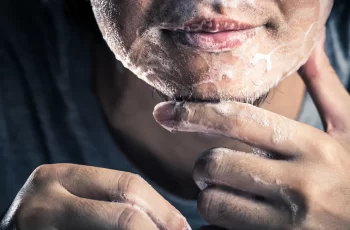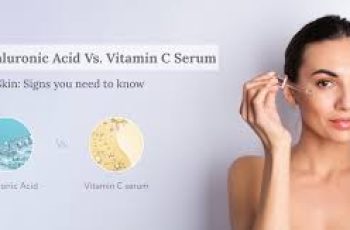
Benefits of Citric Acid for Skin – Why is Citric Acid Good for your Skin?
Citric acid may sound like something from a recipe for lemon cake, but it’s also a skin-restoring alpha hydroxy acid or AHA. Citric acid can provide impressive results for your skin, which is probably why it is added into various formulas! But what is it about this zingy sounding compound that our skin adores so much? Let’s find out more about the benefits of citric acid.
What Is Citric Acid?
Citric acid is an organic acid found in, yes you guessed it, citric fruits, such as lemons, oranges and grapefruit. It’s also worth noting that you can find it in some berries too.
First isolated in 1893 by chemist Carl Wilhelm Scheele who crystallized it from lemon juice, it was first used within the food industry. Apart from being used as a flavouring for food and drink, citric acid is also a very common ingredient in cosmetics with one million tonnes of it produced each year and formulated in over 10,000 different cosmetic products.
Though it’s in the group of AHAs, citric acid contains a lot of skin-benefiting properties making this particular facial acid widely appreciated and you will often find a lot of your products contain a certain amount of citric acid, such as cleansers, face masks, serums and moisturisers.
Is Citric Acid Good For Your Skin?
Yes, absolutely. Citric acid is part of the wider Alpha Hydroxy Acid family, and it can deliver numerous benefits for your skin. Citric Acid works as a chemical exfoliant on the epidermis or the outermost layer of your skin to remove dead skin cells, declog your pores, and even out your skin tone. Citric acid is also used as effective pH adjuster in skincare formulations.
Key benefits of Citric Acid for skin:
Effectively exfoliates and removes dead skin cells.
As a chemical exfoliator, its unclog pores.
Helps reduce the appearance of fine lines and wrinkles.
Helps to even skin tone which is why most toners have citric acid.
Helps to brighten, soften and smooth the skin by targeting pigmentation and dark spots
Targets mild breakouts, such as spots and blackheads
Citric Acid Is Packed with Antioxidants
Packed with antioxidants, citric acid will protect the skin’s barrier from everyday aggressors you unknowingly encounter as soon as you step outside your door. Pollution, environmental and toxins, all ready to cause damage to the skin leading to breakouts and premature ageing. With citric acid fighting your corner, rest assured your skin will remain healthy with the first signs of ageing diminished.
Citric Acid Can Adjust The pH In Your Skin
Citric acid is slightly different from the other AHAs available, as it can adjust the pH levels of skincare product formulas which stops them from being too alkaline. This is important throughout cosmetic products as the skin’s natural pH levels are usually more acidic therefore by applying too much alkaline depletes the skin of vital natural fats. However, applying a product that is also too acidic will cause some stinging and irritation. Luckily balancing pH is an easy task for citric acid and you will find it often comes in a powder form making it easier to combine into formulas.
Citric Acid Can Exfoliate the Skin
Some studies have shown citric acid to be able to exfoliate the skin, rejuvenating the glow back to the former lacklustre complexion. One point to remember is the concentrate of the acid in these studies are as high as 20% which is, in fact, a professional strength and is not recommended for home use. Opting for a lower concentrate will give you saver results without any reactions.
Using an at-home standard product you will find that citric acid will shrink and unclog pores, slough away dead skin cells and debris leaving you with a luminous glow.
Citric Acid Can Repair Sun Damaged Skin And Even Out Skin Tone
Citric acid has been clinically proven to improve the appearance of pigmentation and dark spots on the skin. When applied topically citric acid can work in the outer layers of the skin repairing the skin barrier function enabling it to prevent UV rays penetrating areas suffering from photo damage causing the pigmentation to deepen in colour.
It is important to remember that although citric acid can help treat UV damage, it also makes the skin more photosensitive so applying daily SPF is crucial.
Is Citric Acid Safe To Put On Your Skin?
Perfectly safe, but just be cautious. DIY skincare recipes for masks, scrubs, even removing self-tanner include citric acid a lot of the time. Not trying to discourage you from giving some at-home recipes a go, but something you have to keep in mind is how potent citric acid is and if you measure out the incorrect amount you can cause some reactions to the skin, such as itching, burning and redness.
If you are wanting to see how citric acid can improve the complexion then the best bet would be to try skincare products formulated with the correct concentrations of citric acid that won’t cause irritation or other problems.
How to Introduce Citric Acid into Your Routine?
Citric acid may be one of the more gentle acids, but it still needs to be introduced to the skin gradually to prevent any skin reactions. Over the counter products containing citric acid are generally safer to use at home due to the concentrates having a lower percentage. After a patch test, use the product once a week to allow the skin to adjust and then you can apply it morning and evening 2-3 times a week if your skin is happy for you to do so. Don’t forget to apply a high factor SPF after using citric acid in the mornings.
DIY recipes for citric acid face masks are hugely popular on social media platforms, and although the temptation to replicate them at home is overwhelming, it is best to stick to formulated products and professional chemical peels.
Can All Skin Types Use Citric Acid?
Almost all skin types will find they benefit from using citric acid. But do so with some caution.
If you have an oilier skin type and find you have prominent pores, citric acid could be the answer you were looking for. The acid can work its way down into the skin unclogging the pores of any excess oil and bacteria that can lead to blackheads and spots, a great help for any of you with a blemish-prone skin type too.
As for sensitive and dry skin opting to add citric acid to your skincare routine shouldn’t be taken lightly, this AHA may bring a wonderful glow to the face, but if you make the mistake of going a little too heavy-handed and use it too frequently it can lead to stinging sensation, burning and irritation to the skin. For hypersensitive skin, it’s best to leave the citric acid and perhaps try another AHA.
Is Citric Acid Safe for Skin? What Are the Side Effects of Citric Acid?
Much like all acids, there are some side effects to note when using citric acid.
Skin becomes increasingly more sensitive to UV rays, wearing a daily SPF is important to prevent any lasting sun damage.
If you have a sensitive skin type you may find that you encounter some stinging, burning and irritation.
Before introducing citric acid into your routine it’s best to have a patch test, apply a pea-sized amount onto the forearm and leave it for 24 hours keeping a close eye for any signs of reaction and irritation. Much like all skincare products deciding whether to use it is down to you, but if you are still worried then get in touch with your GP or dermatologist.
So, there you have our guide on citric acid, this natural acid is remarkable in the various ways it can benefit your skin. It’s no wonder it’s so commonly found as an ingredient in so many skincare products out there.
You will find that even in its most natural form, citric acid delivers results. Here’s a top tip for you- if you find yourself having a self-tanning mishap rub half a lemon over the areas you want to dissolve then rinse off in the shower, it’s that simple and another example of how simply brilliant this AHA is. So next time life gives you lemons…. At least now you know you can do a lot with them instead of making lemonade!
Are you finding yourself wanting to know more about products to use with citric acid? Why not take a look at our guide about hyaluronic acid.
Don’t miss out on more skincare tips and expert advice over on our YouTube channel! Come and find us on The Green Sofa by hitting the subscribe button, you won’t regret it!


